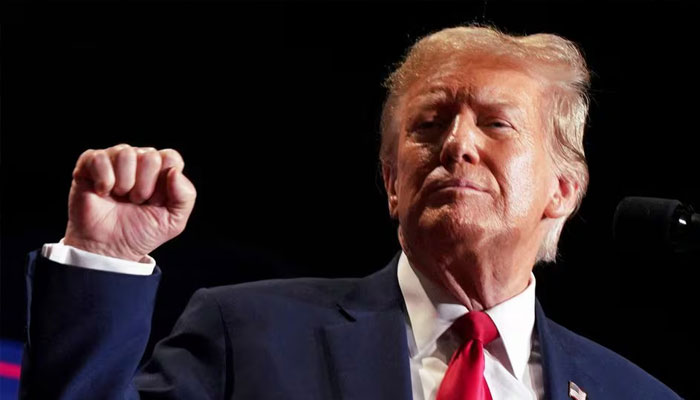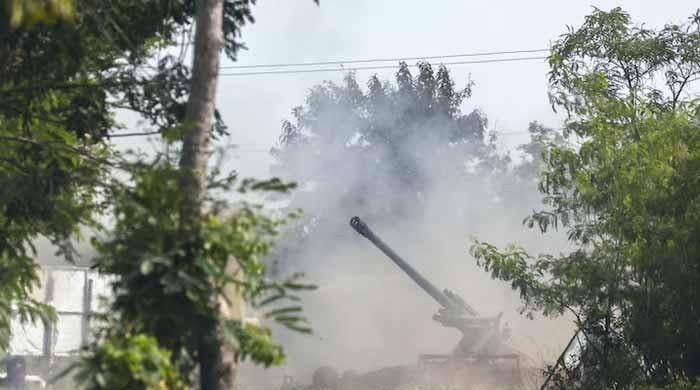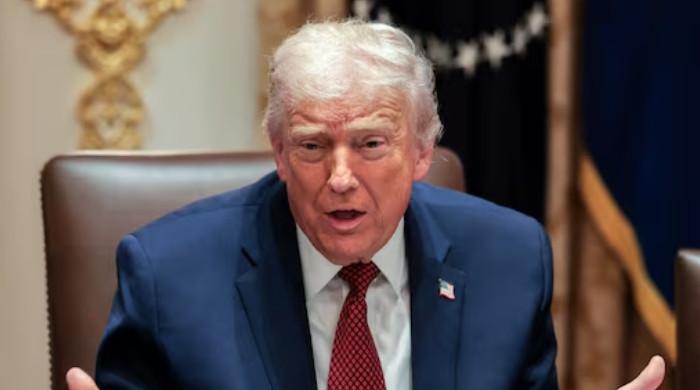US Supreme Court declares Trump eligible for presidential primary, overturns Colorado's court verdict
Colorado Supreme Court's decision on Dec 19 sought to remove Trump from state's Republican primary ballot
March 04, 2024

- Justices unanimously reversed decision by Colorado's top court.
- Colorado SC had removed Trump from state's Republican primary.
- Trump faces eligibility challenges under 14th Amendment.
In a significant win for former president Donald Trump, the US Supreme Court ruled in his favour on Monday, overturning a prior judicial decision that had barred him from Colorado's ballot, Reuters reported.
The decision, based on a constitutional provision related to insurrection due to his alleged involvement in supporting the January 6, 2021, Capitol attacks, reported US media on Monday.
The justices unanimously reversed the December 19 decision by Colorado's top court. The Colorado Supreme Court's earlier decision sought to remove Trump from the state's Republican primary ballot, citing the 14th Amendment of the US Constitution as disqualification grounds for holding public office again, was effectively nullified by the US Supreme Court's unanimous decision.
As the front-runner for the Republican nomination challenging President Joe Biden, Donald Trump faces a complex legal landscape, with his eligibility questioned in multiple states based on the 14th Amendment.
Despite being barred from the ballots in Maine and Illinois, the Supreme Court's swift resolution in the Colorado case provides a significant boost to Trump's candidacy on the eve of Super Tuesday, a crucial day in the presidential primary cycle.
Trump's eligibility was contested by a group of six voters in Colorado, backed by the liberal watchdog group Citizens for Responsibility and Ethics in Washington. They portrayed Trump as a threat to democracy, seeking accountability for his alleged role in the January 6, 2021, Capitol attack.
The court's decision to uphold Trump's candidacy contrasts with the slower handling of his bid for immunity in a federal case related to charges of attempting to overturn the 2020 election.
In the Colorado dispute, the Supreme Court expedited the case, agreeing to hear it just two days after Trump's appeal. The justices issued a written opinion in a remarkably short span of just over two months, emphasiing the urgency of resolving legal challenges ahead of Super Tuesday.
The court's role in this matter underscores its central position in presidential races, reminiscent of the landmark 2000 case Bush v Gore. The 14th Amendment's Section 3, barring individuals engaged in insurrection from office, played a pivotal role in Colorado's top court ruling against Trump.
Despite arguments from Trump's lawyer asserting that a president is not an "officer of the United States" under the disqualification language and questioning the enforceability of the provision without congressional legislation, the court upheld Colorado's decision.
The court's intervention in the aftermath of the Capitol attack, citing the "general atmosphere of political violence" created by Trump, adds a layer of constitutional accountability to the contentious legal battles surrounding his candidacy.
While Republicans decry the ballot disqualification efforts as election interference, proponents argue that holding Trump constitutionally accountable for his alleged role in the insurrection aligns with democratic values.
The Supreme Court's decision, particularly with its 6-3 conservative majority including three Trump appointees, significantly shapes the trajectory of the 2024 presidential race.









